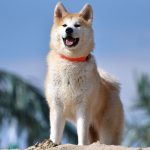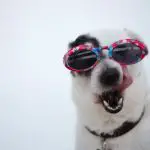Shiba inu, , choosing the breed of dog thats right for you
When choosing a dog, it’s important to choose the breed that’s right for you. In order to do that, you need to know the characteristics and temperament of the breed you’re thinking about adopting or purchasing before you do so. The Shiba Inu is just one breed among many from which to choose.
History/Background: The Shiba Inu (pronounced SHEE-ba inu) was brought to Japan from China 2000 years ago. Shiba means “brushwood” and “small,” and inu means “dog.” It is sometimes translated as “little brushwood dog.” It was originally bred to flush birds and hunt small game in the dense undergrowth of Japan’s mountainous terrain but is now primarily a companion dog. It is probably of chow chow and kyushu blood. It is the smallest of the Japanese native breeds. There are more Shibas in Japan than any other breed.
This breed almost became extinct during World War II but is now the most popular breed in Japan and becoming more popular in the United States. It was brought to the United States in 1954 by an armed service family and was recognized by the American Kennel Club in 1992. The Shiba’s talents include hunting and tracking, watchdog, guarding, agility and performing tricks.
Physical Characteristics: The Shiba Inu is small, compact, muscular, furry and agile and looks like a miniature Akita and may be mistaken for a fox. It has a pointed face, broad forehead and pricked triangular ears. It has small dark eyes, a dark nose and a Spitz-like tail that is thick and strong and curls over the back. It has a plush double coat that most often comes in red or red with a little back overlay or black with tan markings, with white or cream-colored markings on the cheeks and sides of the muzzle, throat, underside and chest. It is 13 to 16 inches in height, and weight is 15 to 25 pounds. Females are slightly smaller than males.
Personality/Temperament: Shibas are alert, lively, confident, fearless, courageous and bold but may be a bit reserved with strangers. They are fast, agile, playful and trainable. They are independent and intelligent. They are loving and kind, loyal and affectionate and are good with children. They do well with other dogs and cats if they are raised with them; however, they should not be trusted around small animals such as rodents and small birds. Shibas are not reliable off leash because of their tendency for strong prey and hunting drive and may chase other animals. Shibas can be aggressive, especially un-neutered males, and must have early obedience training.
Shibas can be a bit stubborn if the owner does not show pack leadership. They bark little and bond closely with their owners. They sometimes make a loud, high-pitched scream, sometimes referred to as a “shiba scream,” when provoked or unhappy and also when very happy or overjoyed.
They are easy to travel with and are easy to housebreak and will often housebreak themselves because of their clean nature. They feel the need to maintain themselves in a clean state, often licking themselves like a cat. They go out of their way to keep their coats clean and will avoid stepping in puddles, mud and dirt.
Possible Health Conditions: This breed is generally hardy and healthy, with few genetic weaknesses, but possible health problems include hip dysplasia, slipped kneecap, glaucoma, cataracts and food allergies, and epilepsy is becoming more common. Life expectancy is about 12 to 15 years.
Exercise/Grooming: The Shiba Inu has tremendous endurance but will adapt to the owner’s circumstances. It requires a daily walk and is very active indoors and will be happier and healthier with regular exercise. This breed of dog can walk for hours. As the Shiba Inu has a clean, coarse, stiff and short-haired coat, grooming is fairly easy and consists of daily brushing with a firm-bristle brush to remove dead hair. Bathing should be done only when absolutely necessary so as not to remove the natural waterproofing of its coat. This breed is a seasonally heavy shedder.
Living Conditions: A Shiba Inu will do okay in an apartment if sufficiently exercised. It is moderately active indoors but does best with at least an average-sized yard. The waterproof coat protects this breed in both hot and cold conditions and it may live outside in a secured yard but does not like to be alone outside and would prefer living indoors with its family.
Summary: This breed of dog has few health problems, doesn’t require a lot of exercise, is easy to groom and housebreak, is loyal and affectionate and makes a good companion but can become aggressive if not trained early and requires strong pack leadership. If you are looking for these characteristics and traits in a dog and are able to fulfill its needs, then perhaps a Shiba Inu is the right breed for you.


